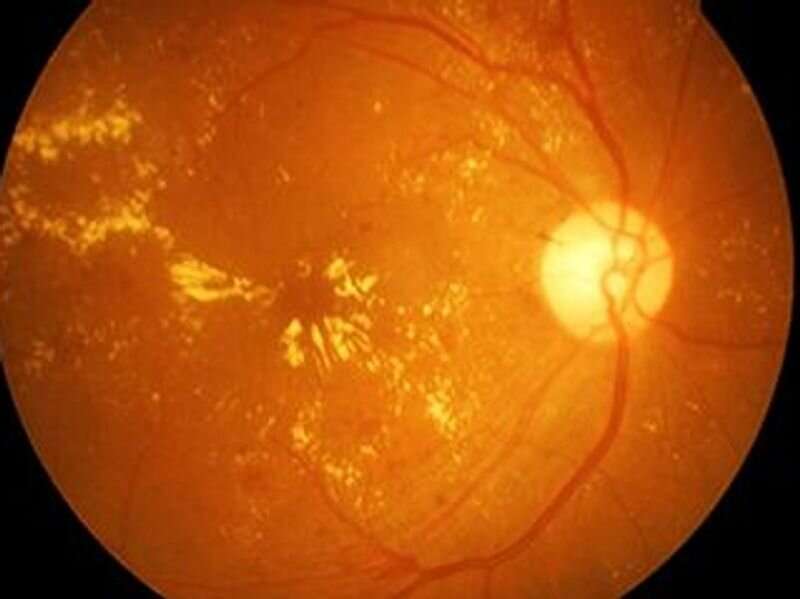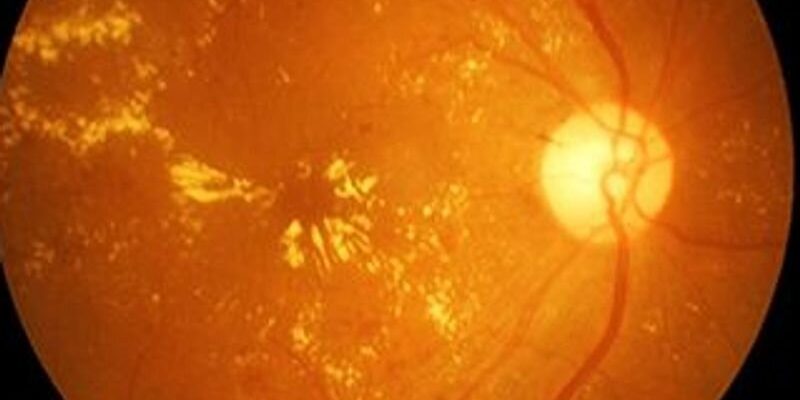
(HealthDay)—Aqueous biomarkers could help identify patients with neovascular age-related macular degeneration (nvAMD) who may not require, or who may not benefit from, long-term antivascular endothelial growth factor (VEGF) therapy, according to a study recently published in the Journal of Clinical Investigation.
Xuan Cao, M.D., from the Johns Hopkins University School of Medicine in Baltimore, and colleagues examined which patients with nvAMD might benefit from longer-acting anti-VEGF agents. A total of 122 eyes with nvAMD underwent three consecutive monthly injections with currently available anti-VEGF therapies, followed by a treat-and-extend protocol, in which patients who remained quiescent for 12 weeks from the previous treatment entered a treatment pause. To identify proteins that correlated with response to treatment, proteomic analysis was performed on aqueous fluid.
The researchers found that within 12 months, 31 percent of the eyes entered a treatment pause (≥30 weeks). Seventeen percent of the eyes failed extension and needed monthly treatment at the end of one year. Proteins that correlated with treatment response were identified, including proteins previously implicated in AMD pathogenesis. In treated patients who required less frequent injections, apolipoprotein-B100 (ApoB100), a principal component of drusen implicated in the progression of non-nvAMD, was increased. Compared with controls, ApoB100 expression was higher in AMD eyes, but lower in eyes that develop choroidal neovascularization (CNV), consistent with a protective role.
Source: Read Full Article
